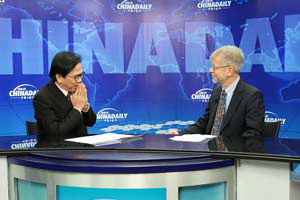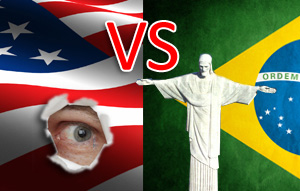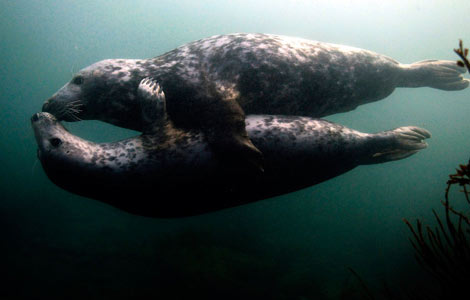Mandela's history with the Middle Kingdom's books
Updated: 2013-12-06 10:50
By ZHANG FAN (chinadaily.com.cn)
|
|||||||||||
|
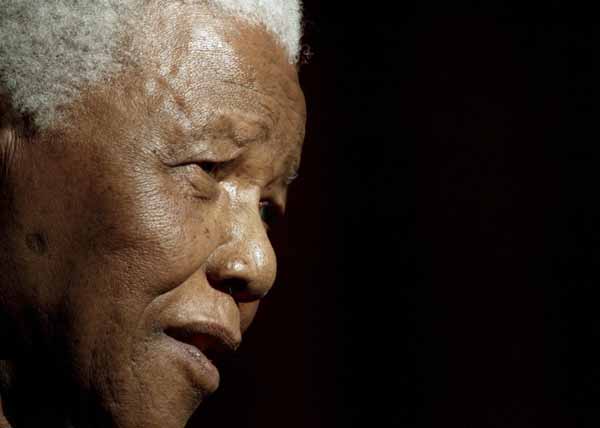 Former South African President Nelson Mandela speaks after being conferred with an Honorary Doctorate of Laws at the University of Galway in this June 20, 2003 file photo. Mandela has passed away on December 5, 2013 at the age of 95. [Photo/Agencies] |
Described by his own people as a great leader with a fine strategic mind, Mandela read many books, especially biographies of revolutionaries, for knowledge and inspiration. On his long reading list were two books about China: Red Star Over China and The Art of War.
In his autobiography, Long Walk to Freedom, Mandela wrote: "I made my way through the available literature on armed warfare and in particular guerrilla warfare. I wanted to know what circumstances were appropriate for a guerrilla war; how one created, trained and maintained a guerrilla force; how it should be armed; where it gets its supplies — all basic and fundamental questions."
Red Star Over China, written by Edgar Snow, is a book about the guerrilla battles of the Communist Party of China, known especially for its neutral and graphic description of The Long March and Mao Zedong's life.
The author came to China in 1936 to meet Mao and fellow leaders of China's Communist Party. He spent the autumn and summer with the army and made biographical accounts of leaders on both sides.
Mandela learned about China's revolution from this book and was deeply impressed by Mao. He wrote in his autobiography: "I saw that it was Mao's determination and nontraditional thinking that led him to victory."
In his interview with Richard Stengel, a senior editor at Time magazine, Mandela praised China's revolution as "a real masterpiece". "The Long March," he stressed, "is indeed a miracle. Once you learned their way of revolution, you will believe that anything is possible."
During his 1999 visit to China as president of South Africa, Mandela said the two countries shared a long friendship and the braveness of Chinese people greatly inspired South Africans in the struggle against Apartheid.
The Art of War by Sun Zi was another favorite book of Mandela's. An ancient Chinese military treatise, it is one of the three leading military books in the world. The famous strategist, who lived in the late Spring and Autumn Period (770-476 BC), put his wisest and most advanced theories of war into 13 chapters, which are still highly valued by the modern world.
During Mandela's early life in Cape Town, he was a lawyer by day and an amateur boxer after work. Despite his busy schedule, he managed to keep the reading habit. He read The Art of War thoroughly and was especially inspired by the words "If you know the enemy and know yourself, you need not to fear the result of a hundred battles".
Recalling Sun Zi, Mandela once noted, "I was confident that the enemy itself wanted a retreat, through a silver bridge". This point of view was revealed in his speech "I am Prepared to Die" at the 1964 Rivonia Trial. Mandela stressed that harmonizing different races and classes was the main goal of the revolution.
Sun Zi believed that a good leader should be wise, reliable, firm, humane and brave. Mandela, as viewed by his people, lived up to these requirements.
Today's Top News
Nelson Mandela has died: President Zuma
French PM starts 5-day visit
UK set to OK Huawei cyber center
New cargo flight builds bonds with Russia
Broader economic prospects pursued
Banks not allowed to use Bitcoin
Dialogue 'key to relations'
China eyes high-level FTAs network
Hot Topics
Lunar probe , China growth forecasts, Emission rules get tougher, China seen through 'colored lens', International board,
Editor's Picks

|

|
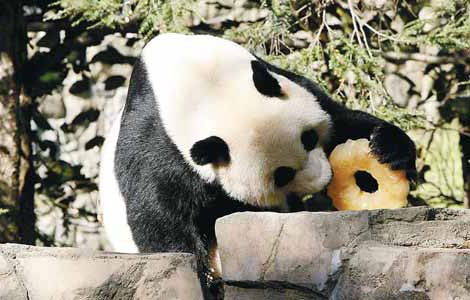
|

|

|

|
